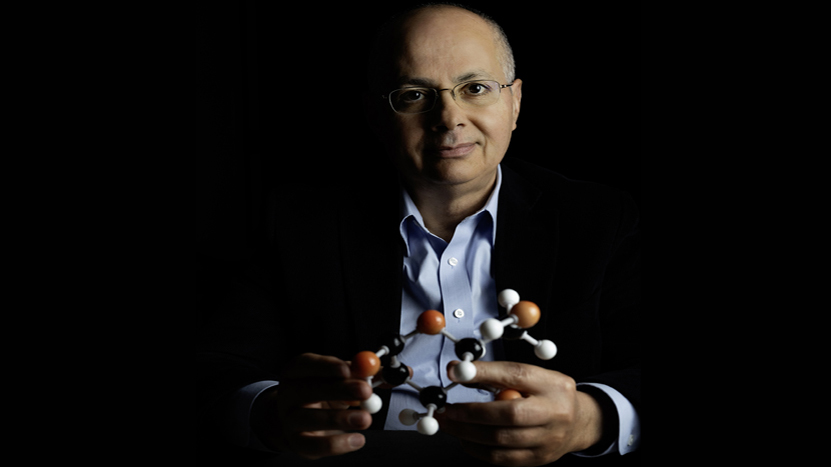
Elham Asaad Buaras
Omar Mwannes Yaghi, a Palestinian-born chemist whose family was displaced by the 1948 Arab-Israeli war, has been awarded the 2025 Nobel Prize in Chemistry, a landmark achievement born from his journey from a refugee camp in Amman to the pinnacle of scientific recognition. He shares the prize with Susumu Kitagawa of Japan and Richard Robson of Australia for developing revolutionary porous materials known as metal-organic frameworks (MOFs).
Yaghi’s win, which marks the first Nobel award to a person of Palestinian descent since Yasser Arafat in 1994, is a testament to a life defined by perseverance. Born in 1965 as the sixth child in a Palestinian family, his early years in Jordan were marked by profound hardship.
The family lived in a house with no electricity, where Yaghi had to share a single room with nine siblings and their livestock.
His childhood was shaped by a precious and scarce resource: water. “I walked three miles every day to school, back and forth,” Yaghi recalled, noting that some days he had to wake at dawn to open a valve for water accessible only a few hours a week. “You had to think of every drop of water back then, because it was really precious.”
His passion for chemistry was sparked secretly at age 10 during a lunch break in a supposedly closed school library, where he discovered a book on molecular models — a moment he describes as “a secret love meeting.”
At 15, with very poor English, Yaghi moved to the United States to continue his education. He earned his B.S. from the State University of New York at Albany and his Ph.D. from the University of Illinois at Urbana-Champaign.
After postdoctoral work at Harvard and professorships at Arizona State University and the University of Michigan, he is now a professor at the University of California, Berkeley. He also serves as the founding director of the Berkeley Global Science Institute and is an elected member of the US National Academy of Sciences.
Yaghi’s groundbreaking work is directly inspired by the hardships of his youth. His research on MOFs has led to the creation of materials with “unheard of properties” — a porous structure the size of a sugar cube can have the internal surface area of a football pitch.
Heiner Linke, Chair of the Nobel Committee for Chemistry, likened the discovery to “Hermione’s handbag in Harry Potter” for its ability to store “huge amounts of gas in a tiny volume.”
This technology is the foundation of Yaghi’s “Atoco Mission,” which aims to harvest clean water directly from the atmosphere, even in the driest regions. The Royal Swedish Academy of Sciences confirmed the materials can be used to “harvest water from desert air, capture carbon dioxide, store toxic gases or catalyse chemical reactions,” offering tangible solutions to the global water crisis and climate change.
Upon learning of his win, Yaghi said he was “astonished, delighted, overwhelmed.” Reflecting on his journey from a refugee camp to Nobel laureate, he stated, “Science is the greatest equalising force in the world… I set out to build beautiful things and solve intellectual problems.”
The laureates will share the prize of 11 million Swedish crowns (£950,000) at a ceremony in Stockholm on December 10. In addition to the Nobel, Yaghi’s illustrious career has been honoured with the Wolf Prize in Chemistry, the King Faisal International Prize, and the Balzan Prize.
Photo: Nobel Laureate Omar Mwannes Yaghi — The Palestinian-born chemist, awarded the 2025 Nobel Prize in Chemistry. (Credit: Christopher Michel/Wikimedia)